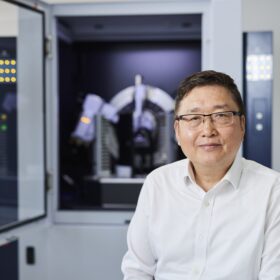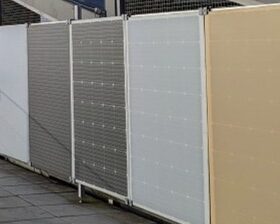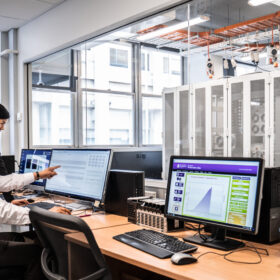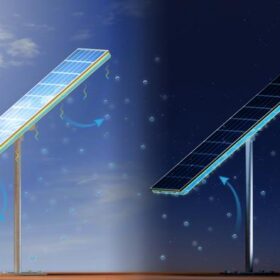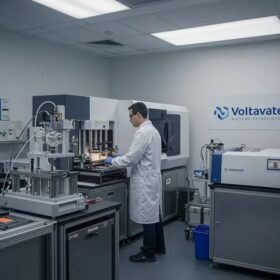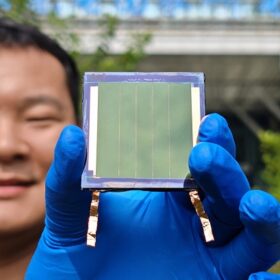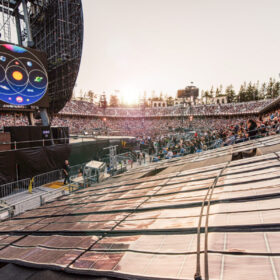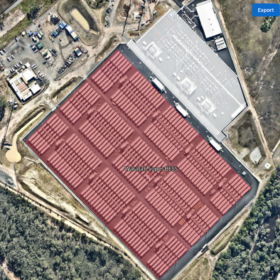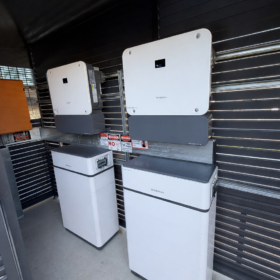Trina Solar reveals 841 W perovskite-silicon tandem PV module prototype
China’s Trina Solar has unveiled a perovskite‑silicon tandem solar module prototype delivering 841 W and 27.1% efficiency, based on 210 mm tandem cells.
Adelaide researchers boost zinc-iodine battery performance
Researchers at the University of Adelaide have developed a new dry electrode fabrication strategy for aqueous zinc-iodine batteries they say delivers cathodes with more than double the performance of iodine and lithium-ion batteries.
Glass-free, coloured PV modules for building rooftop retrofits, facades
Researchers from Swiss and Austrian institutions have demonstrated a novel design for a glass-free, structurally robust silicon PV module. With a weight below 6 kg/m2, the targeted application is older buildings with weak roof structure.
UQ research targets connection challenges for hybrid plants
Researchers at the University of Queensland are leading a project aiming to improve how hybrid renewable power plants – typically including solar and/or wind, along with battery energy storage – connect into Australia’s electricity grid.
New cooling gel could raise PV module efficiency by 12%
An international research team has developed a hydrogel composite that absorbs moisture in solar modules overnight and facilitates evaporative cooling throughout daylight hours. The system has undergone lab tests and outdoor experiments on two continents.
Voltavate to power up battery tech with Artesian backing
Australian battery tech startup Voltavate has secured $850,000 in an oversubscribed pre-seed funding round led by $1.22 billion global alternative investment management firm Artesian.
Scientists build 29.5%-efficiency all-perovskite tandem solar cells
An international team of researchers used a novel interfacial treatment to improve the performance of perovskite solar cells across a range of narrow and wide bandgap single junction, tandem, and mini-module samples. An all-perovskite tandem solar cell demonstrated its use with a certified efficiency of 29.5%.
Kardinia Energy rolls out printed solar for Coldplay concert
Australian printed solar tech company Kardinia Energy and globally acclaimed rock band Coldplay have together delivered one of the largest live-event deployments of mobile solar while providing a high-profile test for organic, ink-based photovoltaics.
Deakin puts peer-to-peer trading of excess solar to test
Researchers at Deakin University have launched a first-of-its-kind project exploring how Australian households and small businesses with solar and or battery systems can sell their excess clean energy to others without the technology.
Project mapping platform adds high-res imagery to mix
Australian renewable energy market intelligence and mapping tool provder RenewMap has partnered with aerial imagery platform Nearmap in a move that provides users with access to the tech company’s high-resolution digitised content.
